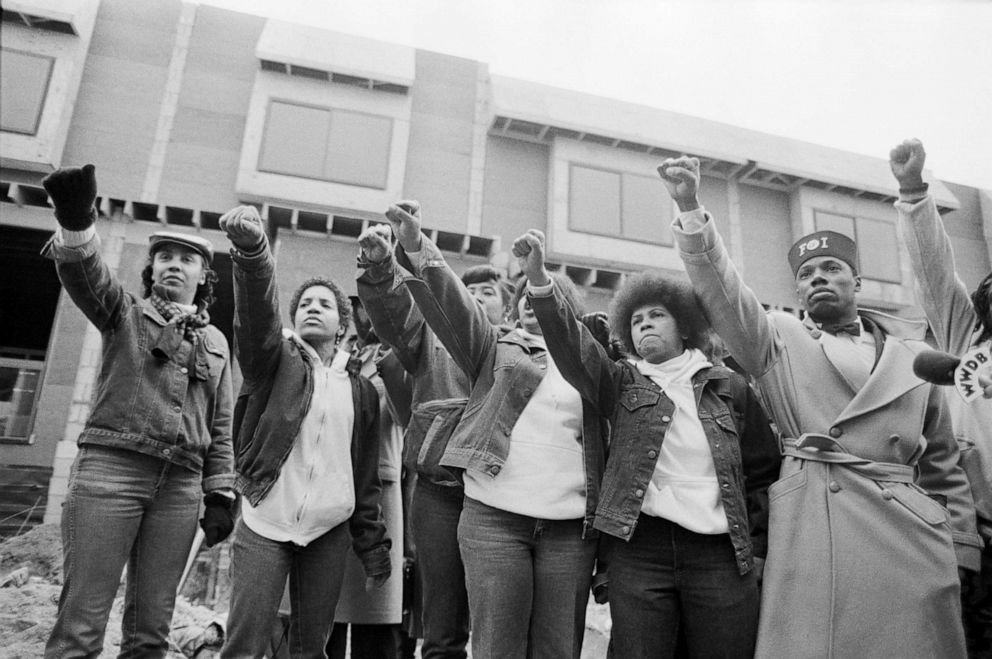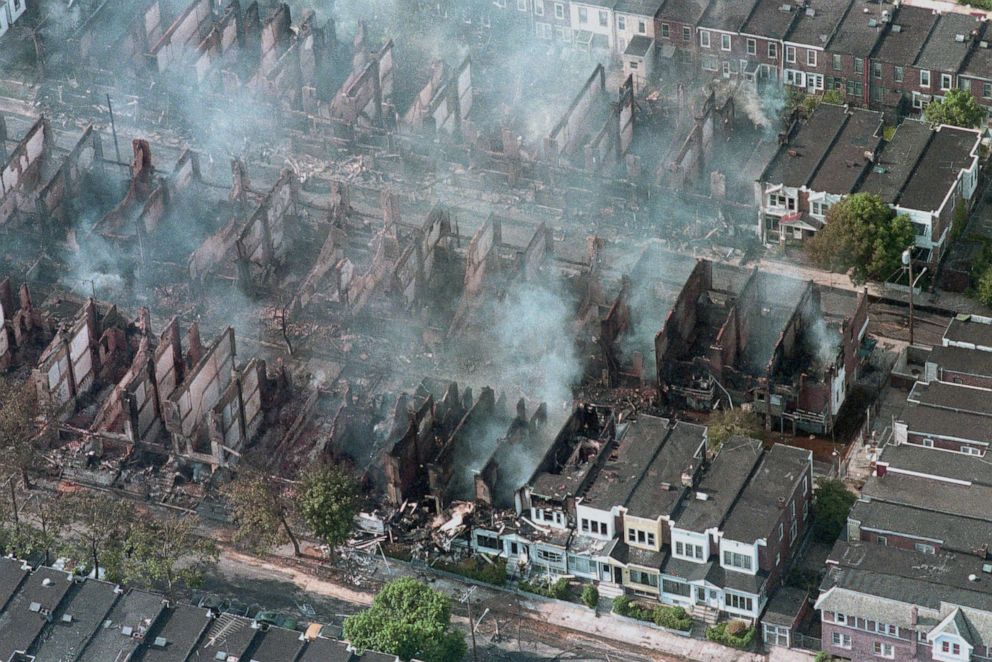'Summer of '85' creator recalls tumultuous time in Philadelphia
"The dissonance... always stuck with me," said creator Chris Morrow.
In the summer of 1985, two unprecedented events unfolded in Philadelphia separated by just two months and 8 miles.
On May 13, the headquarters of a Black organization called MOVE was bombed, ordered by then-Mayor W. Wilson Goode Sr. Eleven people died, including 5 children, and more than 60 homes were destroyed, leaving people homeless.
On July 13, the city hosted the Live Aid concert that aimed to raise money for a famine in Ethiopia that affected more than 7 million people. The Beach Boys, Bob Dylan and Run-D.M.C. were some of the performers, and the concert, together with the London performance, raised over $100 million.
“The dissonance of that happening in the same city so close together always stuck with me,” Chris Morrow, the writer of a new Audible docuseries called “Summer of ’85” told ABC News. “That's what really drew me to the story.”
“Summer of ’85” tells the story of these two events, and includes interviews with musicians Patti LaBelle and Bruce Springsteen, who both performed at the concert. Morrow, who is a Philadelphia native, collaborated with actor Kevin Hart and radio host Charlamagne tha God on the project.
The MOVE bombing was the result of many years of tension between the Black liberation organization and the city’s police department.
The mayor, who would publicly apologize the next day in a televised address, had instructed the police commissioner to develop a tactical plan to remove residents from the organization’s headquarters in west Philadelphia. The police officers' actions later included dropping a bomb onto the residential building and they were told by commissioner Gregore J. Sambor to let the fire burn. Nobody was charged.
A federal jury ultimately found that the city had used "excessive force" in the attack, and forced the city to pay adult survivor Ramona Africa $500,000 and the families of two victims a total of $1 million.
The city formally apologized two years ago.

In doing research for the docuseries, Morrow realized how the events surrounding the MOVE bombing were “largely a mystery to people,” he told ABC News.
“It was so painful to people that they tried to bury this,” he said. “And certainly the city of Philadelphia had plenty of reasons to want this to go away because they do not come out looking very good.”

Although the events happened more than 35 years ago, “the thing that struck me the most was it was almost as if people had been waiting to talk about this for a long time,” he said.
The Live Aid concert, which happened exactly two months later, was organized by musicians Bob Geldof and Midge Ure. The goal was to raise money for the famine that was unfolding at that time in Ethiopia.
During the interview, Morrow noted that a famine is currently unfolding “in the same region of Ethiopia today, 35 years later, and some of the same forces are still behind that.”
“My hope from the series,” said Morrow, “is that people can look at this [and] learn something about a situation they probably didn't have much information on and then say, how can we apply that to where the country is, where the city of Philadelphia is right now and avoid this sort of situation moving forward?”




